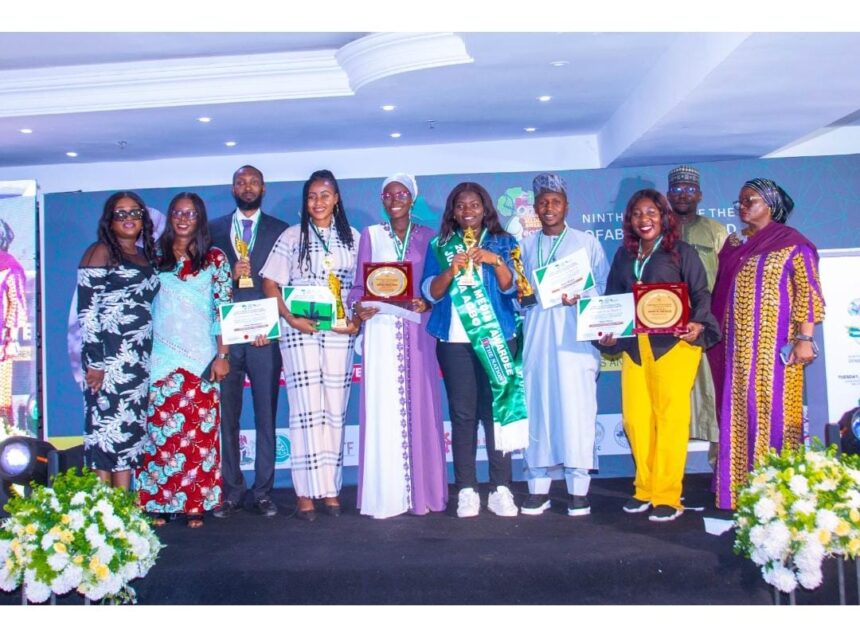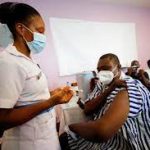By Onche Odeh
Nigeria’s biotechnology community gathered in celebration as the Open Forum on Agricultural Biotechnology (OFAB) Nigeria, in partnership with the National Biotechnology Research and Development Agency (NBRDA), hosted the 9th edition of the OFAB Nigeria Media Awards — an evening that highlighted both the promise of science-driven agriculture and the crucial role of journalists in shaping public understanding of innovation.
The recent edition of the annual event, held in Abuja, recognised journalists whose evidence-based reporting has advanced informed dialogue on agricultural biotechnology, a field increasingly central to Nigeria’s quest for food security, climate resilience, and economic renewal.
In his opening remarks, Director General of NBRDA, Prof. Abdullahi Mustapha, described the media as “the bridge between science and society,” emphasizing that accurate, contextual reporting is vital for ensuring that research outcomes translate into real-world benefits for farmers and consumers.
“Your work matters,” Mustapha told the audience of scientists, policymakers, and journalists.
“It shapes public debate, informs policy, and ultimately helps to transform scientific innovations into tangible benefits for the nation,” he further noted, while also commending OFAB Nigeria for fostering understanding between researchers, regulators, and farmers, a space, he said, where “complex technical issues are explained clearly, myths are challenged by facts, and science is demystified for the public good.”
Mustapha highlighted that Nigeria’s decade-long investments in agricultural biotechnology are beginning to yield measurable results.
Working with the NBRDA, research institutes, and private partners, Nigeria has successfully developed and deployed three genetically improved crops that are transforming productivity and reducing losses. These include the Pod Borer Resistant (PBR) cowpea, which has significantly cut damage from the Maruca pest, reducing the need for insecticides and improving yields; TELA maize, developed for resistance to drought and fall army worm, which field reports suggest has increased yields by 20–35% compared with conventional varieties, and Bt cotton, which has revitalized yields and farmer incomes across cotton-growing regions, injecting an estimated ₦50 billion into rural economies since 2019.
According to Prof Mustapha, “These results are not abstract scientific claims,” adding that “They are the lived experiences of households whose incomes, nutrition, and food security have improved.”
He added that the gains are grounded in rigorous science and strict biosafety oversight, managed through Nigeria’s regulatory system led by the National Biosafety Management Agency (NBMA).
“Biosafety is not a brake on innovation; it is what ensures that innovation proceeds responsibly. Transparency, public engagement, and monitoring are what make biotechnology both safe and beneficial,” he said.
The OFAB Nigeria platform, coordinated under the African Agricultural Technology Foundation (AATF), has become a model for science advocacy across Africa. Through farmer outreach, media training, and stakeholder dialogues, OFAB has created opportunities for scientists, policymakers, and the public to engage in evidence-based discussion on biotechnology.
According to Dr. Rose Gidado, Country Coordinator of OFAB Nigeria, the initiative has directly reached over 50,000 farmers and trained more than 500 academics, 200 policymakers, and 150 civil society organizations since inception.
Across Nigeria’s six geopolitical zones, OFAB’s outreach has helped boost adoption of improved crop varieties and contributed to an estimated 25% rise in staple crop yields in adopting regions over the past three years.
These numbers, According to Dr Gidado, are not mere digits. She said they represent lives lifted and communities strengthened, saying that, “Through knowledge and trust, we (OFAB) are turning scarcity into abundance.”
She added that OFAB’s work has accelerated the adoption of innovations consistent with President Bola Tinubu’s Renewed Hope Agenda, which prioritizes food security, job creation, and economic revitalization through science and technology.
Dr Gidado noted that OFAB Nigeria’s advocacy model has gained continental recognition, with delegations from Ghana, Mozambique, Kenya, Uganda, Tanzania, and Ethiopia visiting to study its public engagement and policy outreach framework.
Ghana has since adapted Nigeria’s farmer-training modules for its northern savanna regions, while Mozambique’s biosafety reforms were inspired by Nigeria’s communication strategies.
“Nigeria now serves as a continental benchmark for how to communicate biotechnology responsibly. Our model is proof that science can thrive when public trust is built on openness and evidence,” Dr Gidado said.
The 2025 OFAB Media Awards honored journalists whose reports have deepened public understanding of biotechnology and its potential for agricultural transformation.
Winners include: Juliana Agbo (The Nation) for Print Category; Auwal Mohammed (FRCN) for Radio Category; and Gloria Attah (Clearview TV), for Television Category.
Juliana Agbo of The Nation emerged as the overall winner while Yusuf Khalid of Rahama Radio was announced as this year’s recipient of NBRDA DG’s Award.
Prof. Mustapha described the winners as “guardians of truth and accuracy in science communication,” urging continued rigor and balance in their reporting.





